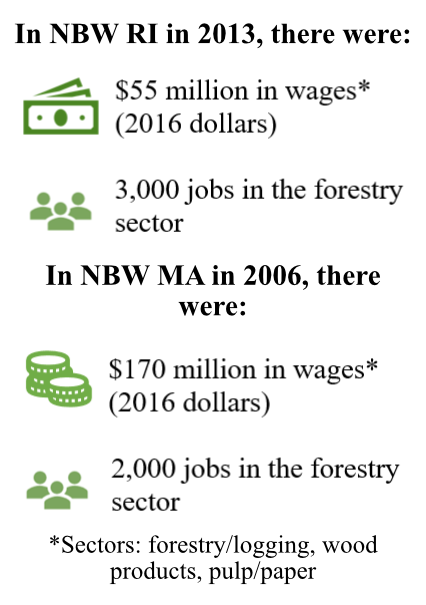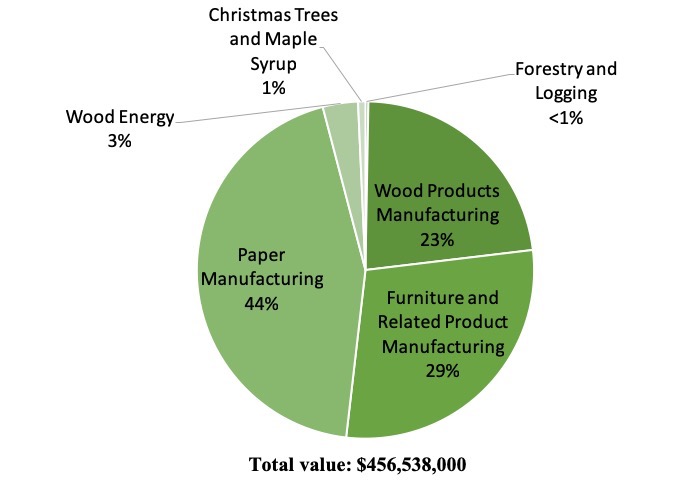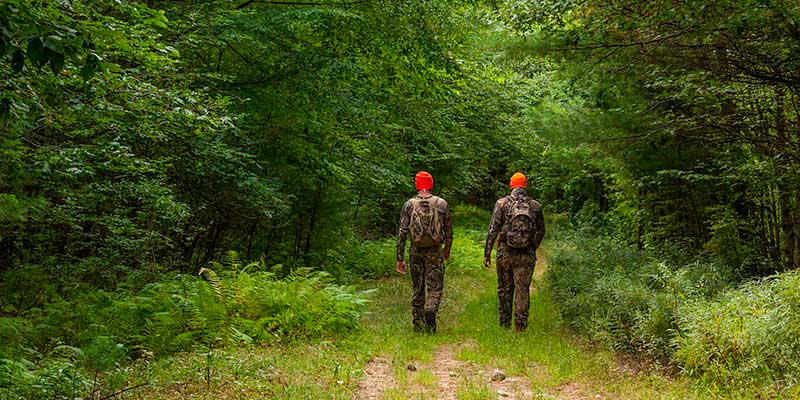

Recent Trends
- Extractive forestry generates millions in sales: the sale of forest-based products in the RI portion of the NBW generated almost $500 million (2016 dollars) in 2013 and accounted for 3,000 jobs with $55 million in wages. Major outputs included wood products, furniture, and paper manufacturing (see graph). In the MA portion of the NBW, the forest sector employed over 2,000 people with over $170 million (2016 dollars) in wages in 2006.
- Most forests are privately owned: in 2013, 74% of forests in RI were owned privately, 16% state-owned, and 10% municipal-owned. In MA, 65% were owned privately, 19% state, 14% municipally, and 3% federally, with nearly 120,000 acres permanently protected.
- Other industries rely on healthy forests: hunting and wildlife viewing, for example, utilize forests. Recreational activities like hiking, rock climbing, and leaf peeping are very popular for residents and tourists – the economic impact of these industries were not calculated in these state-level studies.
- Forests provide key ecosystem services: forests filter and clean the air and water, provide habitats for numerous plant and animal species, sequester carbon, help prevent flooding, and provide myriad other direct and indirect benefits.

Future Outlook
Forest coverage is under threat from sprawling urban and suburban development. Forest fragmentation is an increasing concern that impacts the functions and benefits provided by forests – although overall forest coverage may be relatively constant, forests are broken into smaller patches by roads and development. Fragmenting forests impacts their ability to provide important ecosystem services like water filtration and wildlife habitats. Additionally, climate change will affect the composition and health of forests in the NBW. The temperature in the NBW is expected to increase an average of 7°F in the next century, leading to summer temperatures akin to that of modern-day Georgia or South Carolina. Precipitation patterns will also change, with increased rainfall expected. Species composition will likely shift further north as temperatures increase: northern hardwood species like maple and birch will likely decline, while species like oak and hickory take their place. This changing composition of forests may affect production of forest-based goods, and adaptation to these changes will be necessary for the continued success of the forestry industry in the NBW.
Read the full forestry chapter

